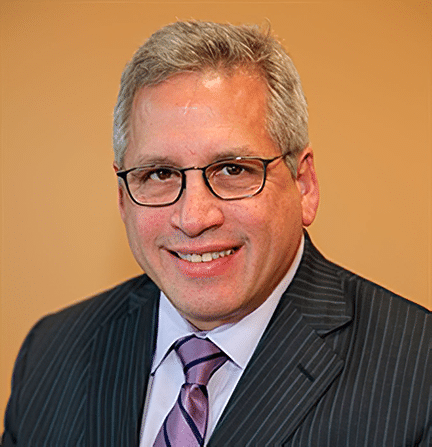The success of Maharishi International University will be measured by its direct and indirect effects on the quality of life everywhere. We will count ourselves successful only when the problems of today’s world are substantially reduced and eventually eliminated and the educational institutions of every country are capable of producing fully developed citizens.
—Maharishi Mahesh Yogi, 1974
What is Planned Giving?
Many people like to support the institutions that mean the most to them with a gift through their will or trust, or other type of planned arrangement. These gifts, known as planned gifts, are usually, though not always, fulfilled upon the person’s passing.
Planned gifts provide a unique opportunity for you to create a lasting legacy.
They provide a way for you to pass on your values – what you have found to be most worthy of preserving for future generations.
Additionally, planned gifts are a way to achieve certain charitable and financial goals, and may yield certain federal tax advantages.
Who can give?
However, people from all walks of life can make a planned gift – not just the wealthy.
When most people think of making a gift, they think of writing a check or using a credit card. Planned gifts are usually made from people’s assets, such as cash, securities
What can I give?
When most people think of making a gift, they think of writing a check or using a credit card. Planned gifts are usually made from people’s assets, such as cash, securities,
real estate, business interests, artwork, intellectual property, retirement plan assets, insurance policies, and investment accounts.
How do I make a Planned Gift to MIU?
Writing your will or living trust requires specific language that accurately identifies your gift. MIU recommends working with an estate planner or a lawyer versed in wills and trusts.
If you already have a will that does not include MIU, your lawyer can help you prepare a codicil in your will.
If you already have a living trust, your lawyer can help insert the instruction into your trust to make the desired distribution to MIU.
Sometimes it is more Complex
Planned giving can be designed in many ways. Sometimes it’s more than just creating a will.
This is a fascinating area of financial knowledge, with all sorts of tools and varying benefits.
If you feel that your needs or wishes are more complicated than a normal will supports, we suggest that you consult with a family lawyer, legacy giving professional, and/or you can take advantage of our Professional Advisory Team (PAT).
In any case, it’s all in the numbers and how they can best serve you and the causes to which you hope to leave a legacy gift.
Bequests, Beneficiary Designation Gifts and Charitable IRA Distributions are easy, flexible, and in some cases have tax benefits. And there are many other intriguing options (see below).
- Charitable Remainder Annuity Trust
- Charitable Remainder Unitrust
- Sale and Unitrust
- Give it Twice trust
- Charitible Gift Annuity
- Charitable Lead Trust
- Charitable Bargain Sale
- Life Estate Reserved
- Stocks/Bonds
- Retirement Asset
- Insurance
- Real Estate
- Oil/Gas/Minerals
- Cash
If you would like support on planned giving options, contact our MIU Gift Officer, who will either assist you directly or involve members of our Professional Advisory Team.
Eric Stakland
- Email: eric.stakland@miu.edu
- Direct: 641-209-5478
- Office: 641-472-1180
Letter of Intent
Letter of Intent
Making a Bequest is Simple
Step 1
Develop Estate Plan
Step 2
Prepare Documents
Step 3
Specify Bequests
1. Evaluate your Estate Plan and Planned Giving Objectives
If you do not have a Will or Personal Trust
For noncomplex estates, create a Last Will and Testament using an online tool such as FreeWill, or if desired, confer with an attorney to create a Personal Trust to hold all or part of your assets.
If you have a Will already
Bequeath to MIU by using an attorney to create a codicil (amendment) to your existing Will.
If asset is held in Personal Trust
Bequeath to MIU by amending the instructions to the trustee
Bequeath to MIU
- Real Estate
- Securities
- US Savings Bonds
- Cash
- Retained Life Estate (you transfer ownership of your home or farm to MIU, while retaining the right to live in the property).
2. Evaluate your Estate Plan and Planned Giving Objectives
No Will or Trust?
For certain assets you can make bequests without a Will or Personal Trust by simply naming MIU as Beneficiary.
Name MIU as Beneficiary
- Retirement account
- Life Insurance
- Bank Account
If you have questions about how to start developing an estate plan, the MIU Development Office stands ready to assist. Our Development officers and professional advisors will guide you through each step of the process. Call Eric Stakland (641) 209-5478 or Brad Mylett (641)-472-1196.
Your Gift
How You Make the Gift
Your Benefits
Bequest in your will or living trust.
Add a gift for MIU in your will or living trust.
Confer with an attorney to add a gift for MIU in your will or living trust.
If you have no will or trust, confer with your tax-advisor or lawyer.
Maintain your current lifestyle while making a meaningful gift to support MIU.
Enjoy flexibility to change your plans as life changes.
Beneficiary Designations
For certain assets you can make bequests by simply naming MIU as sole or partial ben- eficiary of a retirement plan, life insurance policy, or bank account.
Contact your plan administrator to request a Change of Beneficiary form or update your beneficiaries online.
Leave your loved ones less heavily taxed assets while leaving your tax deferred Retirement Plan assets to MIU.
As a nonprofit organization, we are tax-exempt and will receive the full amount of what you designate to us from your plan.
The Professional Advisory Team
If you have a larger estate, children with special needs, complicated family dynamics, or would like to speak with someone about your estate plans, we recommend conferring with an experienced attorney for help.
In addition, if you would like general planned giving advice from our professional advisory team, our office can schedule an appointment to consult with one of the team members to provide advice on how to develop a plan that meets your objectives and needs.
Professional Advisory Team Members

Matthew Frank
Certified Chartered Retirement Planning Counselor, Private Wealth Advisor for Ameriprise Financial; Former Special Assistant to the US Commissioner on Civil Rights.

Leonard A. Goldman
New York University School of Law, JD, Bar Association member in NY, CA, and Hawaii; relevant specialties: contracts and nonprofit organizations.

David A. Ponder
Qualified Pension Administrator, American Society of Pension Professionals and Actuaries. Financial Advisor, Eagle Strategies, LLC – Registered Investment Advisor. Lifetime Member and Top of the Table – Million Dollar Round Table. Agent New York Life Insurance Company

Vicki Alexander Herriott
Dean of Faculty, MIU; New York University School of Law, LLM in Taxation; member of Board of Directors of the Institute for Bio-Integrity and of the International Foundation for Consciousness-Based education; founder of Planned Giving at MIU
If you would like to speak to a P.A.T. member, contact:
Eric Stakland
eric.stakland@miu.edu
phone: 641.209.5478
If you are interested in joining the Professional Advisory Team, contact:
Brad Mylett
bmylett@miu.edu
Innovative Ways to Give
Your Gift
How You Make the Gift
Your Benefits
IRA Charitable Rollover— Qualified Charitable Distribution (QCD)
If you are 70.5 years old or older, transfer any amount up to $100,000
per year directly from your IRA to a qualified charitable organization
such as MIU. See our QCD gift tool.
You pay no income taxes on your required minimum distribution.
For those 72 and older, satisfy all or part of your required minimum distribution for the year.
Stock or Other Securities
Give stock or securities that have increased in value directly to MIU. See our Stock gift tool.
Avoid capital gains taxes on assets that have increased in value.
Donor-Advised Funds
Create a donor-advised fund with the charitable arm of an investment firm or sponsoring nonprofit organization.
Transfer cash or other assets, which are invested based on your preferences.
You recommend distributions be made to nonprofits of your choice.
ualify for an income tax deduction in the year you make a gift to your fund.
Centralize your giving and record- keeping in one location.
Start a legacy of giving by letting your loved ones help decide which grants to recommend.
More about Donor-Advised Funds
Donor-Advised Funds (DAF) allow donors to make a charitable contribution to a private fund administered by a third party, such as Schwab or Fidelity Charitable. The donor receives an immediate tax deduction for the entire amount, and then recommends grants from the fund over time to qualifying nonprofits of the donor’s choice..
- In the situation of a liquid event or large influx of cash or assets, establishing a DAF can be a very effective means to save on taxes.
- Donors should designate a beneficiary for their DAF to ensure their wishes are fulfilled.
- Annual income tax deduction limits for gifts to a DAF, are 30% of adjusted gross income (AGI) for contributions of non-cash assets held more than one year or 60% of AGI for contributions of cash.
- Donors wanting to itemize deductions can bundle several years’ planned gifts into one tax year with the convenience of spreading the gifts over several years.
- A DAF contribution is an irrevocable commitment to charity; the funds cannot be returned to the donor or any other individual or used for any purpose other than grant-making to charities.
- Almost 70% of funds going into a DAF are non-cash gifts, mostly in the form of appreciated stock.
- Donors can establish a DAF with a minimum contribution of $5,000 or more.
The Legacy Society
Since 1994
The Maharishi International University Legacy Society was established in 1994 to recognize and honor individuals during their lifetime who have included the University in their estate plans. Such gifts have helped to ensure a foundational stability over the years that keeps MIU strong. Today nearly 150 forward-thinking individuals and families are members.
Benefits of Legacy Society Membership
- Personalized communications from the University’s president
- Invitation to the annual Legacy Society Recognition event
- Your name listed in the annual University Report
- Opportunities to join knowledge events of interest – in person or virtually – hosted by MIU
The Society is open to everyone who has named MIU in their long-term plans or created an endowment for its benefit.
Want to get started?
If you are ready to describe your legacy plan for the long term support of MIU, please fill out the Letter of Intent. You can always revise your plan later.What People Say
About their Planned Gift to MIU

I feel blessed to be able to support Consciousness-Based education through a sizeable bequest to the University. I salute all of you who are similarly blessed!
It is hard to imagine a more fundamentally beneficial legacy for our world than to give to Maharishi International University.
– John Clausen

We include MIU in our estate plan because education at MIU is unique in the world. MIU is focused on development of the students’ awareness, the students’ consciousness. Then learning becomes easy, automatic, and profound.
What a beautiful education for every young person. We want MIU to always be here.
– Kathleen and Joel Cook

